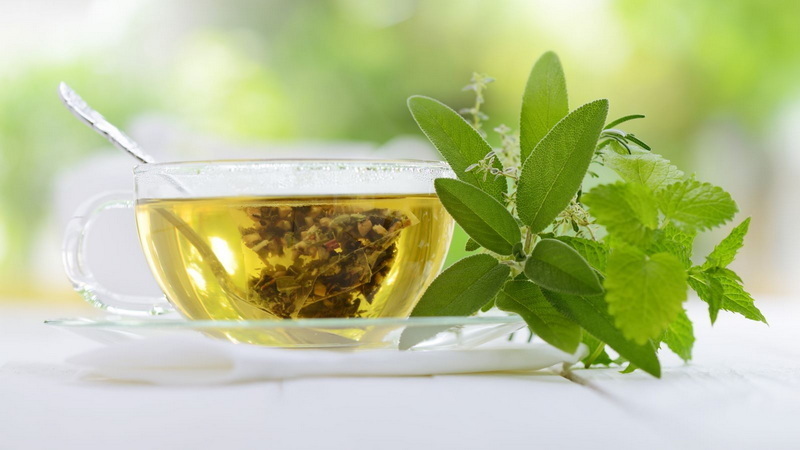Content Menu
● Understanding Green Tea Extract
● Health Benefits of Green Tea Extract
● Safety Concerns with High Doses
>> Liver Toxicity
>> Recommended Dosages
● Potential Side Effects
● Research Findings on Safety
● Biochemical Mechanisms Behind Health Benefits
● Genetic Factors Influencing Safety
● Comparative Analysis: Brewed Tea vs Extracts
● Final Thoughts
● Conclusion
● FAQs
>> 1. What is the maximum safe dose of green tea extract?
>> 2. Can I take green tea extract if I have liver issues?
>> 3. How does green tea extract affect weight loss?
>> 4. Are there any interactions with medications?
>> 5. What are the symptoms of liver damage from green tea extract?
● Citations:
Green tea extract, derived from the leaves of *Camellia sinensis*, has gained popularity due to its purported health benefits, including weight loss, improved brain function, and antioxidant properties. However, concerns have emerged regarding the safety of high doses of green tea extract, particularly its potential for liver toxicity. This article explores the safety profile of high doses of green tea extract, the mechanisms behind its effects, and guidelines for safe consumption.

Understanding Green Tea Extract
Green tea extract is a concentrated form of green tea that contains high levels of catechins, particularly epigallocatechin gallate (EGCG). These compounds are responsible for many of the health benefits associated with green tea.
- Catechins: Powerful antioxidants that help combat oxidative stress in the body.
- EGCG: The most abundant catechin in green tea, linked to various health benefits.
Health Benefits of Green Tea Extract
1. Weight Loss: Some studies suggest that green tea extract may aid in weight loss by boosting metabolism and fat oxidation. A meta-analysis indicated that participants who consumed green tea extract lost an average of 1.3 kg more than those who did not.
2. Heart Health: Regular consumption is associated with reduced risk factors for heart disease, such as high cholesterol and blood pressure. Research shows that daily intake can lead to significant reductions in LDL cholesterol levels.
3. Antioxidant Effects: The high antioxidant content helps protect cells from damage caused by free radicals. This protective effect may reduce the risk of chronic diseases such as cancer and heart disease.
4. Brain Health: Studies have shown that EGCG can protect brain cells from oxidative stress, potentially reducing the risk of neurodegenerative diseases like Alzheimer's and Parkinson's.
5. Skin Health: Green tea extract has been shown to improve skin health by reducing acne and signs of aging due to its anti-inflammatory properties.
Safety Concerns with High Doses
While moderate consumption of green tea is generally considered safe, high doses of green tea extract can pose significant health risks.
Liver Toxicity
Research has shown that high doses of EGCG can lead to liver damage. The following points summarize key findings:
- Hepatotoxicity Reports: Cases of liver injury have been reported in individuals consuming concentrated green tea extracts, particularly those taking doses exceeding 800 mg of EGCG per day.
- Symptoms of Liver Damage: Signs include jaundice (yellowing of the skin and eyes), dark urine, abdominal pain, and unusual fatigue. If any symptoms arise, it is crucial to discontinue use and seek medical advice.
- Risk Factors: Genetic predisposition may increase susceptibility to liver damage from high doses of green tea extract. Research indicates that individuals with certain genetic variations may be at higher risk for liver toxicity when consuming high amounts of EGCG.
Recommended Dosages
- Studies suggest a safe intake level for adults is approximately 338 mg of EGCG per day when consumed as part of a balanced diet or as brewed tea.
- For supplements, a cautious approach is advised:
- Limit intake to no more than 500 mg per day unless under medical supervision.
- Avoid taking supplements on an empty stomach to reduce the risk of adverse effects.

Potential Side Effects
In addition to liver toxicity, high doses of green tea extract can lead to other side effects:
- Caffeine Sensitivity: Green tea contains caffeine, which can cause insomnia, jitteriness, and increased heart rate when consumed in excess.
- Gastrointestinal Issues: High amounts may lead to nausea, diarrhea, or stomach upset.
- Drug Interactions: Green tea extract can interact with various medications, including blood thinners and certain antidepressants.
Research Findings on Safety
Several studies have investigated the safety profile of green tea extracts:
- A study published by the Committee on Toxicity (COT) found that doses equal to or above 800 mg EGCG per day were associated with elevated liver enzymes in treated subjects compared to controls[1].
- The European Food Safety Authority (EFSA) concluded that while traditional green tea infusions are generally safe, concentrated extracts pose a risk for hepatotoxicity[2].
- A systematic review indicated that no adverse effects were observed at doses below 800 mg/day; however, individual responses can vary significantly based on genetic factors[3].
Biochemical Mechanisms Behind Health Benefits
The primary active component in green tea is EGCG which contributes significantly to its health-promoting properties:
1. Antioxidant Activity: EGCG scavenges free radicals and reduces oxidative stress in cells.
2. Anti-inflammatory Effects: It inhibits inflammatory pathways which may help reduce chronic inflammation linked to various diseases.
3. Metabolic Regulation: EGCG enhances fat oxidation during exercise and improves insulin sensitivity which is beneficial for metabolic health.
Genetic Factors Influencing Safety
Recent research has highlighted how genetic variations can affect individual responses to EGCG:
- Variants like UGT1A4 influence how effectively individuals metabolize EGCG.
- Those with certain genetic profiles may experience increased liver enzyme levels even at lower doses compared to others without these variations[7].
Comparative Analysis: Brewed Tea vs Extracts
| Aspect | Brewed Green Tea | Green Tea Extract |
| Catechin Content | Approximately 200-300 mg/cup | Can exceed 800 mg per serving |
| Caffeine Levels | Lower (30-50 mg/cup) | Higher concentrations possible |
| Risk Profile | Generally safe | Higher risk for hepatotoxicity |
| Antioxidant Benefits | Present but lower concentration | High concentration available |
This table illustrates how different forms impact both safety and efficacy regarding health benefits.
Final Thoughts
In conclusion, while high doses of green tea extract can offer significant health benefits such as weight loss support and enhanced antioxidant capacity, they also come with risks that should not be overlooked—especially concerning liver health. Individuals should approach supplementation cautiously and consider lifestyle factors alongside dietary choices for optimal health outcomes.
Conclusion
While green tea extract offers numerous health benefits when consumed in moderation, high doses can pose serious health risks, particularly concerning liver health. It is essential for consumers to be aware of their intake levels and consult healthcare professionals before starting any new supplement regimen.
For those considering using green tea extract for its health benefits, moderation is key. Drinking brewed green tea or taking low-dose supplements may provide similar benefits without the associated risks.

FAQs
1. What is the maximum safe dose of green tea extract?
The maximum safe dose is generally considered to be around 500 mg per day for supplements containing EGCG.
2. Can I take green tea extract if I have liver issues?
Individuals with liver disorders should avoid green tea extract unless advised by a healthcare professional.
3. How does green tea extract affect weight loss?
Green tea extract may aid weight loss by increasing metabolism and fat oxidation; however, results can vary among individuals.
4. Are there any interactions with medications?
Yes, green tea extract can interact with several medications, including blood thinners and certain antidepressants. Always consult your doctor before use.
5. What are the symptoms of liver damage from green tea extract?
Symptoms include jaundice (yellowing skin/eyes), dark urine, abdominal pain, nausea, and unusual fatigue.
Citations:
[1] https://cot.food.gov.uk/sites/default/files/2024-12/COT%2008.2024%20-%20Statement%20on%20the%20hepatotoxicity%20of%20green%20tea%20catechins_FINAL_0.pdf
[2] https://cot.food.gov.uk/sites/default/files/2024-11/COT%2008.2024%20-%20Statement%20on%20the%20hepatotoxicity%20of%20green%20tea%20catechins_Lay%20summary.pdf
[3] https://www.canada.ca/en/health-canada/services/food-nutrition/public-involvement-partnerships/notice-modification-list-permitted-supplemental-ingredients-permit-use-green-tea-extract-supplemental-ingredient-foods/document.html
[4] https://www.healthline.com/nutrition/10-benefits-of-green-tea-extract
[5] https://health.clevelandclinic.org/green-tea-extract-a-better-way-to-boost-energy-or-not
[6] https://www.urmc.rochester.edu/encyclopedia/content?contenttypeid=19&contentid=GreenTeaExtract
[7] https://www.rutgers.edu/news/green-tea-extract-may-harm-liver-people-certain-genetic-variations
[8] https://www.healthline.com/nutrition/egcg-epigallocatechin-gallate
[9] https://www.webmd.com/vitamins/ai/ingredientmono-960/green-tea
[10] https://health.clevelandclinic.org/green-tea-health-benefits






























